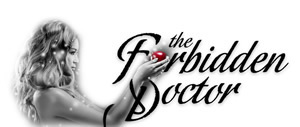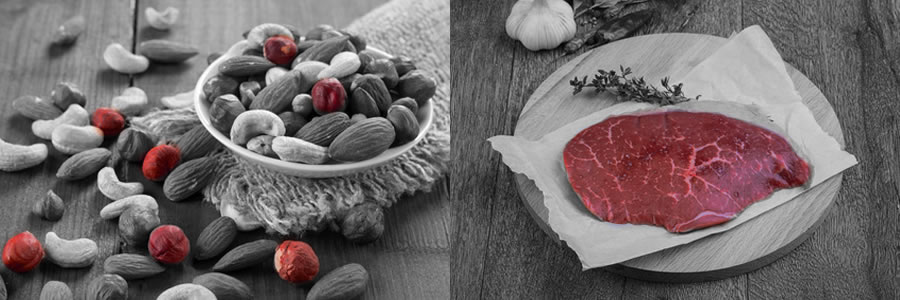Most people are simply not aware there are significant differences between animal and plant-based proteins. As far as they are concerned, one type of protein is just as good as the other. As far as we are concerned, they are incorrect.
The USDA and the food industry in general, are not interested in educating people about the differences between animal and plant proteins, because it is the job of the USDA to promote the agricultural as well as the animal-sourced food industries.
If you listened to any of the Forbidden Doctor podcasts, then you are already aware that animal-based proteins need to be a part of your diet, though you may not be completely sure as to why.
Your Body Needs Complete Proteins
Your body relies on complete proteins to live. Proteins provide the basic building blocks for your body’s cells. Without protein, your cells could not repair or replicate themselves. When you consider that your heart cells get replaced every 30 days, and the majority of your heart muscle is protein, any source that does not include complete proteins will rob your heart of some of it’s intrinsic strength.
Without complete proteins heart muscle will always be robbed to some degree, of optimal performance.
Animal Proteins Offer the complete Amino Acids Your Body Needs
Complete amino acid content is one of the biggest differences between plant and animal-based proteins. When you eat protein, your stomach acid breaks proteins down into peptides and amino acids. The protein you eat does not enter the bloodstream as you might suppose. What actually happens during the digestion of proteins, is the conversion of proteins into amino acids, which are then absorbed into the blood. Then your circulatory system can deliver the required amino acids to cells throughout your body, where they are assembled back into proteins as directed by the cell’s nucleus to heal your heart, or your ear, as it may be.
Animal sourced nutrition is extremely dense, and since they are far more complete, a lot of nutrition is packed into a small amount of food. You can see the differences by watching the eating habits of the animal kingdom. A cow needs to graze throughout the day to get the calories and proteins it needs to thrive. Some carnivores, like lions, only need to eat once every few days. They eat so rarely because they consume the extremely dense nutrition of the fatty organs of it’s prey. The heart, brain, liver, glands, etc., provide a tremendous amount of protein and fat that can sustain them for days.
Humans are more like lions than cows. You need densely packed proteins so you can do more with your life. The the fact that humans consume animal proteins is part of what makes humans such an industrious species; capable of traveling great distances and discovering new things in the world around us – and being Creators.
Nutrition You Miss From Plant-Based Proteins
Plant-based proteins do not contain B12, regardless of the controversy about this, the human body needs a dense source of B12 to function properly. Without a good source of B12, you will develop digestive and nerve problems. Eventually, you may develop pernicious anemia, a condition that will leave you drained of energy, and can lead to internal bleeding. Yeah, just that.
Some people think taking B12 supplements can correct their health problems. Unfortunately, artificial B12 created in a laboratory cannot do the job of natural B12. You need to eat whole foods with animal proteins, especially organ meat to get the benefits of B12.
B12 can be absorbed only when consumed and digested with animal based proteins and fats. This latest fad of blaming our health problems on our genes, such as the MTHFR gene methylation problems, can be directly traced to our lack of consumption of organ meats. This current issue would never had grown into the problem it is had we continued to eat the diet of our ancestors – animal based proteins – especially organ meats.
If you read the ingredients on Cataplex B or Protefood or any of the B vitamin products of Standard Process, you will notice the intrinsic factor included, which comes from organ meats. You cannot assimilate B vitamins without that. This is the brilliance of Dr. Royal Lee who told us this seven decades ago.
Do you realize what we just told you? Do you realize nobody else other than the subscribers to the Forbidden Doctor podcast will know this? Do you know what the most exciting thing in the world is? It’s learning something new. You just learned something nobody else seems to know in this modern world. You need to have organ meat in your B vitamin supplement in order to methylate it! In other words, in order to absorb and use the energy from that wonderful vitamin.
Go tell you neighbors. They won’t know this. Tell them that all the synthetic B vitamins in the world will not give them results they are seeking.
Adding More Animal-Based Proteins to Your Diet
Adding more animal-based proteins is pretty simple, but you can’t rely on the information you get from the news. That information will point you in the wrong direction by telling you to avoid fat. The truth is, that you need animal fat in meat and especially in organ meats, in your diet. Plant fat is just not a complete enough fat that is needed for human health and energy. And heated vegetable oils, like canola and such, can be very, very damaging to your health, when used for deep frying.
Liver contains a lot of fat and very dense protein, and eating it is one of the best ways to improve your health. Other animal organs also offer surprisingly high levels of nutrition. Just like the lion, you should eat hearts, livers and other animal organs. It’s what mother nature intended.
We realize that this is not a practical health choice for many modern day people. This is why we heavily recommend Standard Process products, as almost all of them contain one or more animal tissue extracts, which historically has been known to stimulate the growth of healthier human tissue. In light of that fact, where the consumption of animal organs is not necessarily your “cup of tea” you might want to just supplement with the likes of: Cataplex B, Cataplex G, Cataplex GTF, Cardio Plus, Protefood, Calcified (which is bone soup “in a pill”), etc.
At the very least, you should eat clean deep ocean fish a few times per week. Deep ocean fish contain DHA and EPA fatty acids that are essential for heart and brain health.
Instead of managing symptoms, you need to eat foods that will improve your overall health by giving your body the nutrition it craves.


Great information thank you.
What do you recommend for vegetarians that are deficient in b12?
Thanks!!
Love your work.
Hi Faith! Our apologies for missing this wonderful question.
As you likely know, the best food sources for B-12 are indeed animal products (i.e. the highest amounts are found in liver, sardines, grass-fed beef, lamb, mackerel). That’s why Standard Process’s “Cataplex B-12” is created with ingredients such as bovine liver, porcine stomach, bovine spleen, etc). Ideally, these animal are the best sources of B-12.
Next in line are dairy products (such as raw milk, yogurt, cheese). However, another great source of B-12 if you are vegan or vegetarian is Nutritional Yeast. Those delicious, cheesy flavored little flakes are delicious lightly baked onto kale chips. One tablespoon of nutritional yeast will provide you with 2.4 micrograms of B-12 (40% of your daily value). You can find nutritional yeast in a number of places from natural grocery stores to online retailers. Let us know if you have any more great questions!
Jackie..
These take so much time and study with hours of research, that your thank you is well received.
Dr. Jack and Mary
You must have heard of the China study? How about Esselstyns work with heart patients? I think I’ll pass on a meat based protein diet thanks.
Hi Alan,
We appreciate hearing from you. I have read most of the China Study and I, as well as many others, have found it to be full of flaws. The thing to understand is association is not causation, which is offered as “proof” in the book. I am sure your mind is made up, and that is OK with us. Think on this…the stomach, when eating, fills with HCL (Hydrochloric Acid). This does not do much to fats nor carbohydrates. It is designed to destroy complex proteins, and with the addition of pepsin from the stomach wall, the most powerful proteolytic enzyme in the body, it is really after complex proteins from a very dense source…animal. Something to think about. Some people actually do well with a plant based diet, but they are few compared to the rest of humanity.
Dr. Jack and Mary